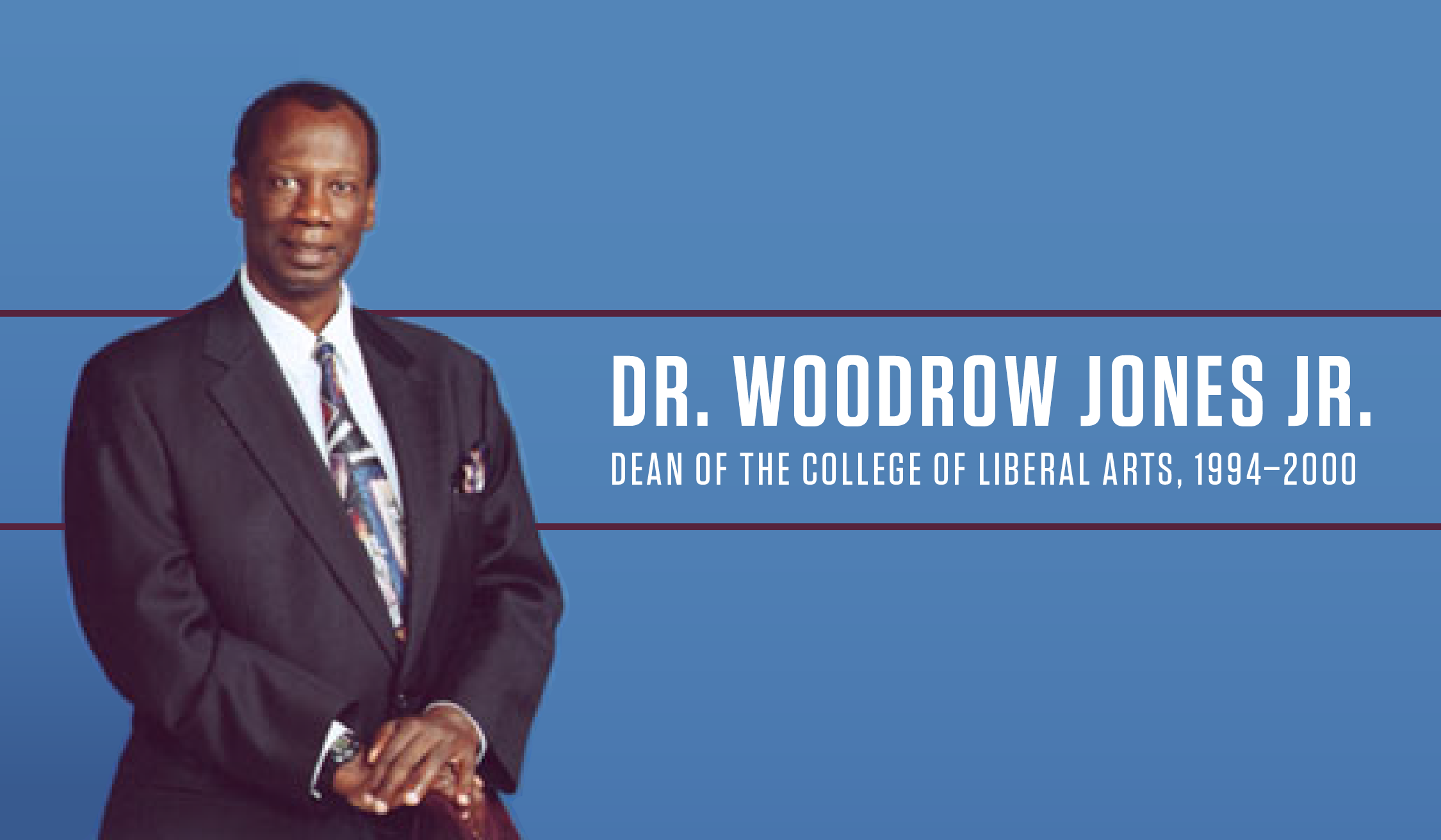Remembering “Woody” and his legacy
In light of Black History Month, the College of Liberal Arts remembers and celebrates the first African American dean at Texas A&M, Woodrow "Woody" Jones, Jr.

by Heather Rodriguez ’04
 In 1994, Woodrow Jones Jr. made history by becoming the dean of the College of Liberal Arts and first African American dean at Texas A&M University. But what his friends in Liberal Arts, who affectionately refer to him as “Woody,” remember him for his commitment to diversity, his passion for the college, and his sense of humor.
In 1994, Woodrow Jones Jr. made history by becoming the dean of the College of Liberal Arts and first African American dean at Texas A&M University. But what his friends in Liberal Arts, who affectionately refer to him as “Woody,” remember him for his commitment to diversity, his passion for the college, and his sense of humor.
Jones came to Texas A&M in 1988 from San Diego State University. Prior to becoming dean, Jones was a professor in the Department of Political Science, where he specialized in public policy research and racial discrimination in health policy in particular.
“Barriers are broken when people come together to work for a common goal,” Jones said after his appointment as dean. “I can’t change everything, but I can be part of the process by offering insights that lead to change.”
Paul Wellman, the associate dean for Information Technology and Facilities, said his commitment to diversity ran deep.
“He had run into racial issues all his life, and had worked quietly to change the system from within, both as a scholar and as dean,” he said.
As part of his commitment to diversity, Jones developed the Race and Ethnic Studies Institute (RESI), an interdisciplinary institute that studies how conceptions of different races and ethnicities have shaped the human experience. He recruited Mitchell F. Rice, a former colleague from San Diego, to serve as its director.
“There’s no doubt that Dean Jones had a tremendous impact on the university in terms of diversity and race relations,” Rice said. “He saw the university as both interesting and challenging at the same time.”
Jones was also known as a huge proponent of the value of a liberal arts education. He often reminded the faculty and administration that Liberal Arts touches every student as part of the core curriculum.
“He was concerned about the role of the liberal arts in the university,” Wellman said. “He called the college the heart and soul of the university.”
According to Rice, this dedication to liberal arts made him a well-respected dean who had a knack for comforting people.
“Woody was known for good humor, but was also known to let you vent if there was something on your mind,” he said. “He had a serious side and a funny side…I had the honor of knowing both.”
Kenneth J. Meier, Distinguished Professor of Public Administration in the Bush School, agreed.
“My favorite thing about him was his great sense of humor,” he said. “I think the world is a bit worse off without him in it. I miss Woody.”
Originally posted here.
